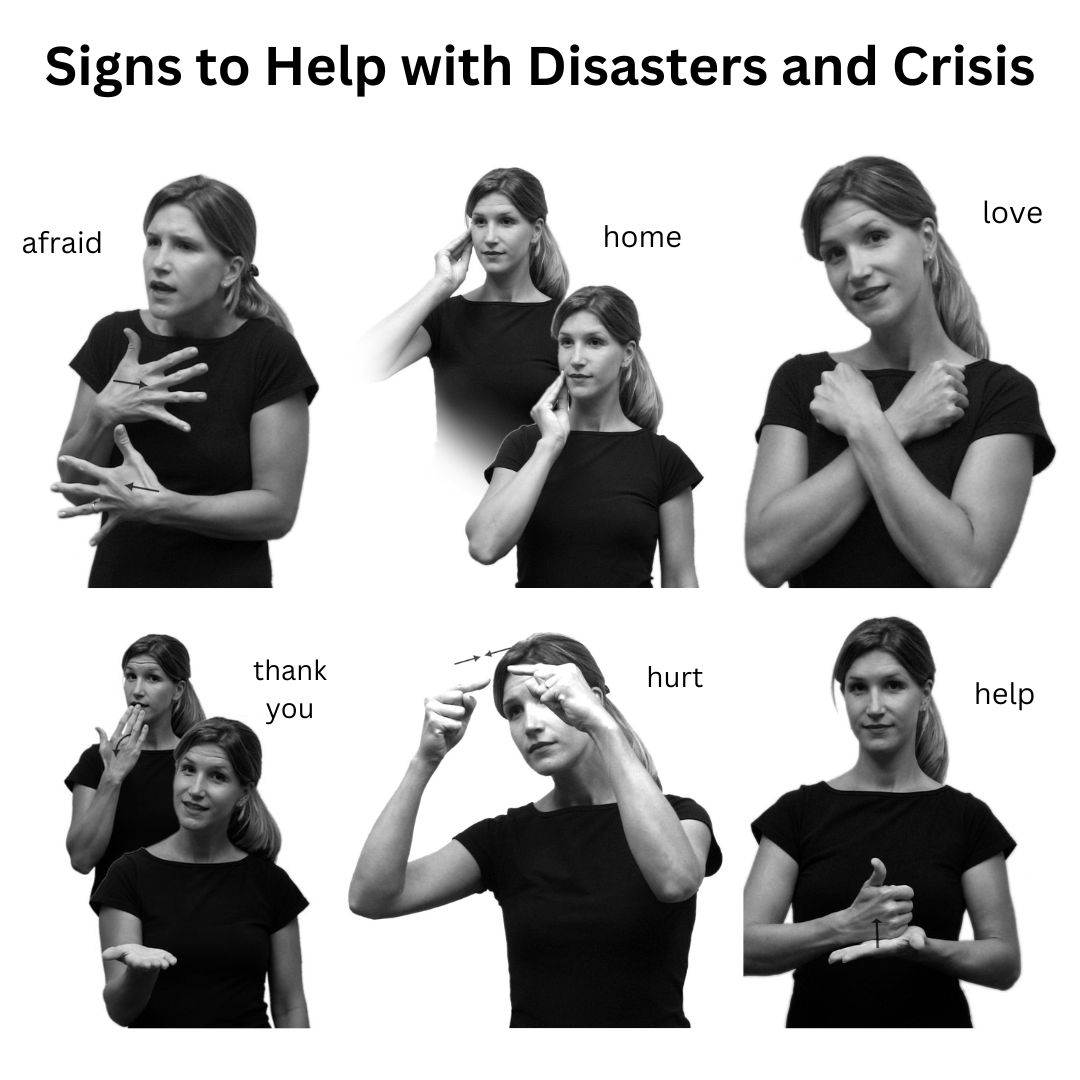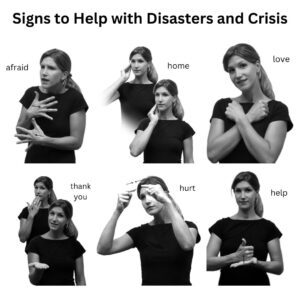
Helping Children Cope with Disaster and Crisis
Linda Acredolo, Ph.D.
Co-founder, the Baby Signs® Program
It seems whenever one turns on the TV these days there’s news of another disaster, whether hurricanes, earthquakes, floods, fires, terrorist attacks, war or personal crises. Given how sensitive children are to the emotional atmosphere at their home, it’s very important for parents to be aware of the impact these traumatic occurrences can have on their little ones and to understand what they can do to mitigate the emotional consequences.
Whether it’s a natural disaster, terrorist attacks or war, parents need to know simple things they can do to help children through these times. It is important to note that children do not have to be directly involved in the crisis to feel the effects of it on their lives. The signs below are helpful ones that can ease a child through any transition.
One of the blessings of the Internet age is that help for many problems is at one’s fingertips, and that includes advice on how to help children deal with disasters. In culling through a number of the sources, many of the tips rang true based on our own knowledge of development. We’ve listed these below and then, at the end, included addresses for a few specific websites that might be useful.
How anxiety manifests itself:
- Increased separation anxiety
- Reluctance to go to sleep
- Nightmares
- Reluctance to go to school/babysitter
- Regression to less mature behavior
- Acting out (e.g., sibling spats; tantrums)
- Physical symptoms (e.g., tummy aches, head aches, etc)
- Inability to concentrate
- Withdrawn behavior and sad countenance
Helping children coping with disasters
- Children detect parental anxiety, so admit your concerns while stressing your confidence in being able to cope with the problem.
- Emphasize the sources of support the family has received during the disaster, is currently receiving, and can count on down the line (e.g., extended family, friends, community resources, etc.). The goal is to help the child feel taken care of.
- Encourage your child to talk about the situation and his/her feelings
- Treat expressed fears with respect rather trying to reduce them by being dismissive.
- Reassure them over and over that they are safe.
- Provide information about any ways you will try to avoid such traumas in the future if possible.
- Congratulate them on any behaviors that were helpful during the crisis or helpful in its aftermath.
- Understand that it’s natural for children to focus on how the disaster affected THEM (e.g., lost toys) rather than understanding the magnitude of the problems the adults face.
- Answer questions honestly, including admitting “I don’t know.” In age-appropriate detail, describe the steps being taken to deal with any losses.
- Re-establish routines as soon as possible, even if they have to vary from those in place before the disaster. Children are comforted by being able to predict events.
- TAKE CARE OF YOURSELF. Children can detect parental distress, so finding ways to make yourself feel better will pay off in dealing with your children—including helping you be patient with them.
- Find some fun things to do—movies, play-dates, trips to the park. Such occasions will not only distract your child from his/her anxiety and fear, but also provide evidence that life goes on and can still be joyful.
- Avoid exposure to newscasts or printed materials that show frightening images.
- Keep promises.
- Find ways to help others who have experienced losses. Helping others reinforces the idea that people help each other, thereby increasing a child’s sense of security.
For more information, check out these websites.
- Free resources to guide parents, caregivers, and professionals in helping young children cope with trauma during conflict. Now in Amharic, Arabic, Hebrew, Russian, Spanish and Ukrainian. https://www.zerotothree.org/news/terrorism-and-war-sharpen-focus-on-traumatic-effects-of-violence-on-babies-and-toddlers-resources-available-to-help-children-families/
- American Academy of Child and Adolescent Psychiatry: https://www.aacap.org/AACAP/Families_and_Youth/Facts_for_Families/FFF-Guide/Helping-Children-After-A-Disaster-036.aspx
- Mental Health America: http://www.mentalhealthamerica.net/children-cope-with-tragedy
Happy signing (and don’t forget to follow us on Facebook)!
Linda Acredolo, Ph.D.
Co-founder, the Baby Signs® Program
and Professor Emeritus, UC Davis
September 21, 2017

